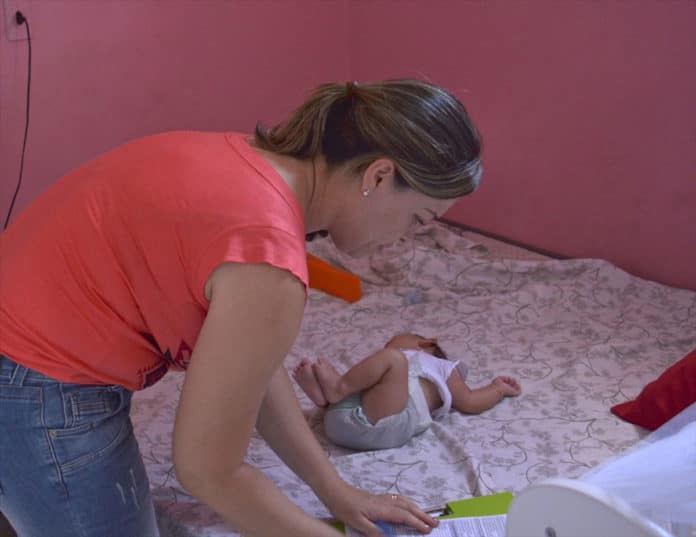For decades, infection by Zika virus (ZIKV) went either unrecognized or occurred only sporadically and was associated with mild symptoms. Earlier, it was recognized that congenital infection could cause fetal abnormalities, including visual and hearing impairment, skeletal deformities, and microcephaly. Why some ZIKV-infected pregnant women deliver healthy newborns while others have babies with microcephaly is unknown.
A team of scientists including Yale School of Public Health, Oswaldo Cruz Foundation (Fiocruz), the Federal University of Bahia and The Rockefeller University of New, shed light on this to find out the answer and potentially offer new treatments.
Through this study, they have shown that the risk of giving birth to a child with microcephaly may be identified with how the mother’s immune system responds against the virus—explicitly what sort of antibodies it produces.
Together, the scientists set up multidisciplinary teams of doctors, nurses, and laboratory staff to give care for babies with birth defects during the outbreak. They likewise structured an examination that recruited moms and their babies at the city’s largest maternity hospital to see how Zika causes birth defects.
The clinical outcomes found that approximately 10% of the babies conceived during the outbreak at the hospital had developed extreme birth defects, including microcephaly. This offered to ascend to another examination investigating potential clarifications for the distinctive birth results.
After analyzing blood samples from 150 pregnant women, scientists found that mothers produce some antibodies to fight Zika infection. And according to scientists, the antibodies were possible culprits contributing to the birth defects.
This finding was later confirmed in animals suggesting that, rather than protecting the body from Zika, some antibodies may help the virus enter maternal cells, increasing the risk of fetal brain damage.
Albert Ko, professor, and chair of Epidemiology of Microbial Diseases at YSPH said, “Infection of the mother with the Zika virus produces antibodies that protect the mother and fetus against the virus. However, our findings suggest that in some mothers, the infection may also produce harmful antibodies that may increase the risk of infection and birth defects in the fetus.”
Rockefeller Research Associate Professor Davide Robbiani, who led the latest study with Rockefeller colleague Professor Michel Nussenzweig said, “There is currently no approved vaccine against Zika and, in light of the new findings, developing one could turn out to be trickier than experts have previously realized.”
“Although our results only show a correlation at this point, there could be significant implications for vaccine development. A safe vaccine would need to induce the immune system to selectively produce protective antibodies, avoiding those that potentially enhance the risk of microcephaly.”
Scientists are conducting further research to establish which types of antibodies might be harmful to unborn babies, and by what mechanisms they promote fetal damage.
The study is reported in the Journal of Experimental Medicine.
